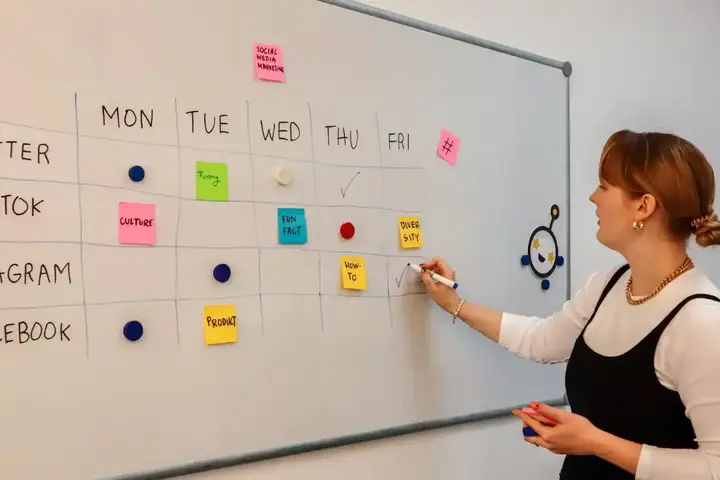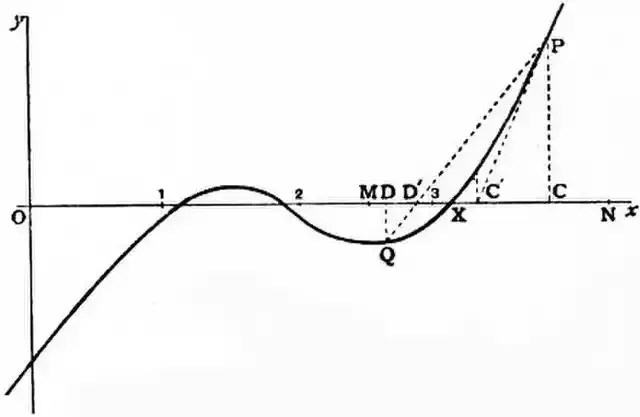Time Management Skills: Effective Methods to Increase Productivity
In a world that is accelerating relentlessly, time becomes our most precious resource. The ability to manage time effectively is a vital skill not only for success in professional life, but also for balance and satisfaction in personal life. We often find ourselves overwhelmed by a sea of tasks, trying hard to stay productive, while striving to maintain the quality of work and life. Time management, when applied correctly, is not just about working hard, it's about working smarter.
Show key points
- Time management is crucial for achieving both professional success and personal well-being by helping individuals balance tasks efficiently.
- Effectively managing time boosts productivity not by extending working hours but by optimizing the quality of work done within available time.
- Prioritizing tasks using tools like the Eisenhower Matrix ensures that focus is maintained on what truly matters, leading to smarter work outcomes.
- ADVERTISEMENT
- Techniques such as the Pomodoro method promote deep focus and energy conservation by structuring work and break intervals.
- Workplace productivity can be enhanced through strategies like task grouping and effective delegation, which minimize distractions and maximize efficiency.
- Overcoming common time management challenges—like procrastination and distractions—requires the use of personalized strategies and strong boundary-setting skills.
- Ultimately, time management is more than a technique; it's a daily lifestyle practice that transforms fleeting moments into meaningful progress.
Increasing productivity doesn't necessarily mean spending more hours at work; it means using the time available in the most efficient way. This requires clearly prioritizing, avoiding procrastination, and adopting work methods that help focus and progress toward goals. In this article, we will explore a range of effective techniques that can be applied to improve time management and increase productivity, enabling us to regain control of our schedules and lives.
Recommend
The concept of time management

1.Definition and importance of time management
Time management is the process of consciously planning and controlling the time allotted for private and professional activities. The goal of time management is to increase efficiency and productivity, reduce stress, and improve quality of life.
By prioritizing and organizing schedules, individuals can achieve their goals faster and with less effort. The greatest importance of time management lies in its ability to help us focus on long-term goals, while maintaining work-life balance.
2.The relationship between time management and increased productivity
There is a close relationship between time management and increased productivity. When we manage our time effectively, we can reduce wasted time and increase the time invested in valuable activities.
This means we can get more work done in less time, and therefore increase productivity. Time management also helps reduce stress and feelings of fatigue, leading to improved focus and overall performance.
Effective time management methods

1. Prioritize and organize tasks
Prioritization is the first and essential step in time management. This requires evaluating goals and tasks based on their importance and associated deadlines.
Methods such as the Eisenhower Matrix can be used to categorize tasks into different categories (important and urgent, important and non-urgent, unimportant and urgent, non-important and non-urgent), which helps in clearly prioritizing them. Then, time and efforts can be organized to focus on the most important tasks, ensuring that time is used in the most effective way.
2.Time division techniques: Pomodoro technique
The Pomodoro technique is a popular time management technique that divides work into specific time intervals, known as "pomodoro", each lasting 25 minutes, followed by a short rest.
This method encourages intense concentration and reduced distractions, which helps conserve energy and improve productivity throughout the day. This technology can be adapted to suit individuals and the nature of their work, making it a flexible and powerful time management tool.
Apply time management methods at work

1. Strategies to improve productivity in the work environment
Improving productivity in the workplace requires more than just hard work; it requires working smarter. Using strategies such as "time aggregation," where similar tasks are grouped and accomplished in a specific time, can reduce the constant shift between tasks and increase concentration.
Technologies such as "effective delegation" can also help distribute practical burdens among team members, allowing each individual to focus on their core tasks and improve personal and group productivity.
2.Case studies and examples of time management success
Looking at case studies and practical examples can provide valuable insights into how to successfully apply time management techniques. For example, a major tech company might implement a "flexible working week," allowing employees to set their working hours based on their most productive time. This leads to improved performance and job satisfaction. Or another company may use short "standing meetings" to update the team on progress and prioritization without wasting time in long meetings.
Challenges and solutions

1.Common Time Management Challenges
Time management may face many challenges that hinder effectiveness and productivity. Prominent among these challenges are procrastination, distraction due to multiple distractions, and the inability to say "no" to unnecessary tasks.
Challenges can also include difficulty prioritizing, over-planning without implementation, and dealing with ongoing interruptions. These challenges require specific techniques and methods to overcome them and make the most of the time available.
2. Practical solutions to overcome these challenges
To overcome these challenges, it is important to develop a personalized time management system that includes techniques such as clearly prioritizing and using time management tools such as calendars and to-do lists.
Techniques such as "time aggregation" for similar tasks and "effective delegation" for tasks that can be performed by others can also be applied. In addition, communication skills must be developed to learn how to say "no" effectively and set boundaries to maintain focus and productivity.
At the end of our journey through the corridors of time management and its effective methods, we realize that time is the most valuable currency in our lives. The ability to organize time and use it wisely is key to increasing productivity and achieving goals. Together, we explored how thoughtful methods and elaborate strategies can turn ordinary watches into productive and fulfilling moments.
We hope that these insights have inspired you to adopt a new approach to managing your time, and that you have found in this article the tools you need to improve your productivity. Always remember that time flies no matter how we use it, but we have the ability to choose to use it in a way that benefits us.
Finally, don't forget that time management is not just a skill acquired, it is a lifestyle practiced daily. Let us make every moment an opportunity for growth and progress, and always strive for excellence in everything we do.
![]()
Medieval Viking banquets
Medieval Viking banquets more- ADVERTISEMENT
![]()
Elon Musk's Brain Chip - Facts and Oddities
Elon Musk's Neuralink has stirred buzz with its brain chip, Brain-Link, aiming to let humans control devices with their minds. Though still experimental, early tests show promise—like a paralyzed person using it to control a computer—while sparking ethical concerns over privacy, safety, and equality. more- ADVERTISEMENT
![]()
Equations That Changed the World of Physics: A Historical View
Equations That Changed the World of Physics: A Historical View more- ADVERTISEMENT
![]()
5 ways to change your mindset today
Only 8% of people actually reach their goals, and what sets them apart is their powerful mindset. Instead of chasing new skills, start by flipping negative thoughts and setting small, achievable goals. Massive change begins with consistent tiny steps—and yes, you can train your mind for success. more- ADVERTISEMENT
![]()
Success Guide – How to turn your presentation into an exciting story?
Success Guide – How to turn your presentation into an exciting story? more- ADVERTISEMENT
![]()
Proven ways to build your confidence
Self-confidence isn't about being perfect—it's about knowing your strengths, embracing your flaws, and growing through experience. Celebrate small wins, speak kindly to yourself, and keep learning. With each step forward, you’ll prove to yourself that you are capable and ready for life’s challenges. more- ADVERTISEMENT
![]()
Why do some people attract mosquitoes like magnets, others don't?
Why some popele are Mosquito Magnet, some NOT? more- ADVERTISEMENT
![]()
Is time travel possible? Astrophysicist explains the science behind science fiction
Time travel fascinates us, but science says it’s not so easy. While Einstein’s theory shows time moves differently at high speeds—like for astronauts—true time travel still faces big hurdles. Wormholes, paradoxes, and the laws of physics keep it in the realm of imagination, at least for now. more- ADVERTISEMENT
![]()
7 simple tips to improve daily concentration
7 Simple Tips to Improve Daily Focus more- ADVERTISEMENT
![]()
Neolithic revolution
The Neolithic Revolution more- ADVERTISEMENT





















